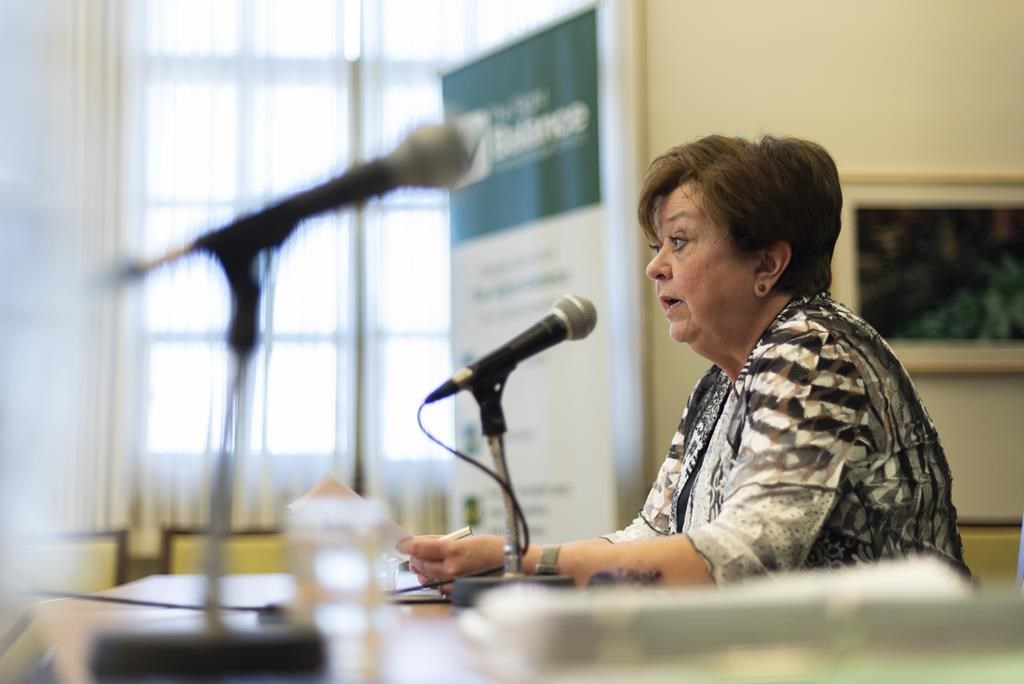The Saskatchewan government said it ended the last fiscal year with a lower deficit than initially planned.

It reports ending 2018-19 with a deficit of $268 million — almost $100 million lower than what was budgeted.
“Our year-end actuals show that Saskatchewan’s fiscal position and financial outlook continue to improve,” Finance Minister Donna Harpauer said Thursday in a statement.
“Our government’s plan to return the province to balance remains on track.”
The province also said it saw $206 million more in revenue flow into government coffers than what was forecast for the budget year.
Harpauer said that was largely a result of non-renewable resource revenues.
“Potash revenue recorded the most notable increase, due to both higher prices and higher sales volumes,” she said.
Harpauer said the strength of potash sales factored into a decision to eliminate a resource credit and deductions related to the potash production tax.
“Potash had the strength that we felt that they did not necessarily need the exemptions that they were getting,” she said.
The government has a three-year plan to balance the budget for 2019-20 and expects to bring in $34 million more in revenue than expenses.
“Each fiscal year has its own set of unique factors that impact our budget,” Harpauer said.
“Weather, natural disasters, global commodity prices, financial markets and interest rates can all affect the province’s bottom line, and we will continue to manage these risks and variables responsibly on behalf of the people of Saskatchewan.”
WATCH: Saskatoon Public Schools eliminating positions due to funding shortfall

The province doesn’t yet know the financial impact of the federal carbon tax on the budget, said Harpauer, including how it could affect costs for schools and health-care facilities.
She said economic indicators show the province’s economy and population are still growing.
Roughly 72 per cent of government expenditures in 2018-19 went to health care, education and social services and assistance.
—With files from Global News

Comments